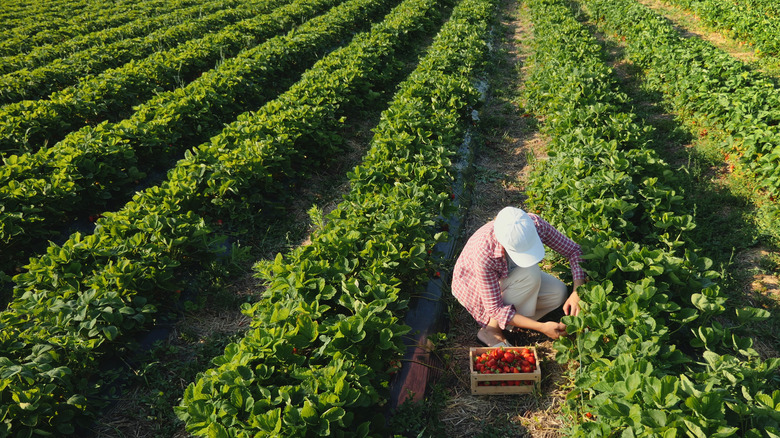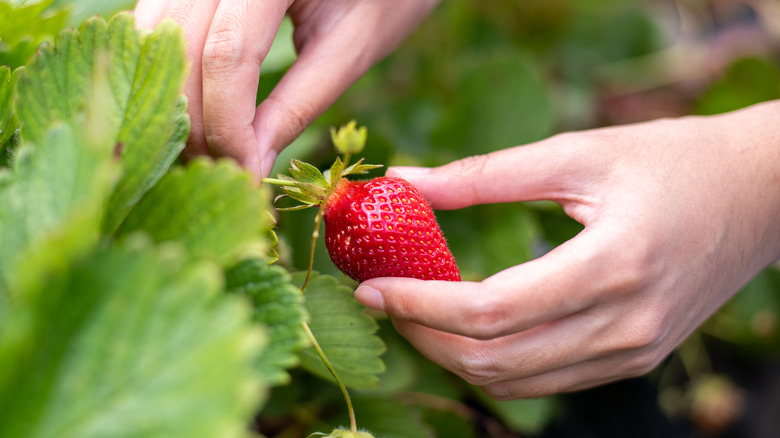The Real Reason Canada May Start Producing A Lot More Berries
The effects of the world's changing climate is beginning to have a greater impact on agricultural producers. According to the Environmental Defense Fund, along with raising temperatures, climate change is likely to cause more and more extreme weather as well.
The agriculture of California's famed central valley, for example, is under threat by increasingly frequent droughts and heat waves. The United States Geological Survey says this puts "40% of the nation's fruits, nuts, and table foods" at risk. Some producers are already looking to fairer climates to preserve their traditional crops.
Reuters reports that some of Italy's most famed olive oil producers have already moved to cooler climates. Regions like Val d'Aosta which are typically famed for their ski resorts are now being examined as options for growing olives instead. The famed lemons of Italy's Amalfi coast have also been subject to more extreme weather due to climate change, and their numbers have dwindled as a result.
American berry growers have also begun looking to more favorable climates as well according to Reuters. Trial crops of berries are now being planted in regions of Canada that were historically favored for their maple syrup production as berry producers plan ahead for a warmer future.
American berry producers go North
Reuters reports that two of North America's largest fruit producers Driscoll's and Naturipe Farms LLC are testing out berry production in Ontario and Quebec. Both are attempting to see if rising temperatures will allow the typically shorter growing seasons of the Great White North to become hospitable regions for berry production. These farms are currently only being treated as trials for future production, and aren't expected to upset the apple (or in this case berry) cart anytime soon.
Reuters reports that this relocation is also due to high transportation costs, and a growing demand for local berries in Canada. These companies see Canada as a potential market for growth, and hope to cut costs by reducing the need for imports and shipping.
Besides the shorter growing seasons, Motley Fool notes that the Canadian berry industry has also been struggling due to a lack of pollinator bees. The Canadian Honey Council says it lost 400,000 bees this past year, and has found it challenging to make up for those losses. Many agricultural producers depend on bees to pollinate their crops, and as their population shrinks, yields fall with them.

